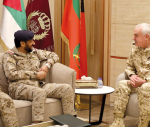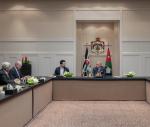You are here
Mistakes and lessons to be learned
Dec 17,2015 - Last updated at Dec 17,2015
Since the start of the so-called Arab Spring in 2011, the Arab world has been in a mess.
Overall, freedom, democracy, and economic and social development regressed. Dreams, not only of Arab unity, but even of joint Arab coordination and action have been shattered.
Worse, several countries in the region have become battlefields, both literally and metaphorically, in which chaos, violence and terror reign supreme.
Tragically, hundreds of thousands of Arab civilians lost both homes and lives; those who survived are too often displaced or refugees, in the region and beyond. The rest have lost their sense of security and hope.
This is a catastrophe of immense proportions.
The reasons for this tragic situation are many. One major cause was the inability of both regimes and opposition in most countries to deal with the challenges and opportunities the popular uprisings brought with them.
Early in 2011, the popular uprisings were civil, responsible and orderly. There was a historic opportunity for positive change.
The Arab Spring could have been a positive turning point, and we would have been reaping the benefits now. Unfortunately, both the regimes and the opposition, out of foolishness or malice, failed to capitalise on the uprisings to bring about the desired reforms and changes.
Rather than harness the energy of the dissatisfied but orderly public, and channel it through dialogue and responsible political action in the direction of human rights, liberties, democracy and development, they either allowed or resorted to violence and militarism to settle differences. The result is the chaos and destruction that we see, for which both regimes and opposition are responsible.
Two other factors, however, contributed to the tragedy the Arab world is going through: one is Arab countries interfering in the affairs of others, the other is allowing regional and world powers to interfere.
In the case of the first, no matter how much one Arab country disliked or even hated the regime of another, it should not have actively sought to change the regime. This is a red line.
Regime change or “transfer of power”, as it is sometime called, is an internal matter. It should have been left entirely to the regime, the opposition and the people of an individual country. And it should have been brought about through civil, peaceful means and through dialogue.
Foolishly and maliciously, some Arab countries started to work actively to change some Arab regimes, lending support even to disorderly and suspect “opposition” groups, many of whom turned out to be mercenaries, thugs and outright terrorists.
Instead of Arab solidarity and respect for the sovereignty of each Arab nation, we started having an inter-Arab war, supported by Arab money and Arab “volunteers”.
This war is still unfolding and no one is sure about its consequences.
As for the second factor, inter-Arab bickering has naturally encouraged and invited non-Arab regional powers and international colonial powers to intervene as well. Those countries have their own hidden economic and political agendas, and have used the messy and hostile inter-Arab relations to intervene for the purpose of furthering their interests.
The most egregious example of both inter-Arab and non-Arab intervention is Syria, which became a battlefield where, after it has been almost depopulated, the regime and the “opposition” are deadlocked in a bloody fight.
It is also the battlefield in which regional and international powers are waging their wars, not against a common enemy, as it is sometimes claimed, but against different enemies for each power.
Syria is also a classic example of the tragic flaw committed by Arabs during the Arab Spring: both regime and opposition invited regional and foreign powers to meddle in its affairs.
Historically, the opposition in the Arab world has been accusing and blasting the regimes for both drawing support from and being lackeys to foreign powers. The minute the opposition got some power, it, just like the regimes it criticised, threw itself in the arms of foreign powers.
Those who reject foreign intervention are the people.
There is no hope for this region unless the above issues are addressed and the mistakes corrected. It is most important for the Arabs to learn to settle their differences through wise diplomacy, not military intervention, and for regimes and the opposition never to allow outside interference in their internal affairs.
Before anything else, the regime and the opposition need to learn to bring about change through dialogue, cooption and democratic institutionalisation, not through violence and militaristic means.












